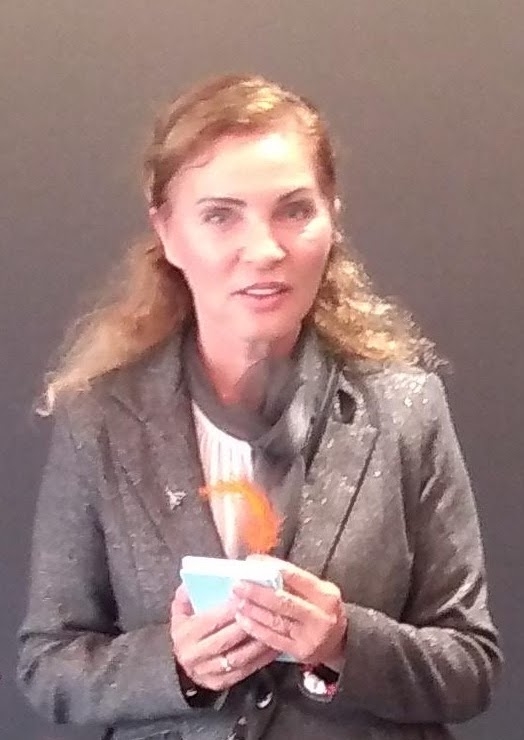eviDance2030 ... arts4SDGs
2 years agoEngagement of dance arts students, professionals, and all interested to contribute to the improvement of working &health conditions of employed, self-employed, and retired dance arts performers, mediators and educators & 4 more cultural democracy in the financing of dance arts projects and productions, including the variety of cultural and artistic expression, acknowledging the contribution and the impact deriving from various dance arts practices & styles to the realization of the sustainable development goals (17 UN SDGs), peacebuilding through international collaborations and the mental and physical health & wellbeing of the wider population (Art&Health WHO report 2019)
referring to the following effects:
1) effects on the improvement of the quality education SDG4 (such as improvement of teaching methodology, technical training, resilience, community outreach- audience development by inclusive workshops, collaboration with formal educational institutions, cultural communities, universities, business corporations, policymakers…)
2) effects on working conditions SDG 8 (such as improvement of transversal skills, development of further career opportunities, enabling higher rate in the financial contracts through international engagement, …)
3) effects on health & well-being SDG3 (such as gaining more quality professional training for dance arts students and professionals in collaboration among internationally recognized pedagogues, scientists, and research institutions, as well as supporting local communities and formal educational institutions, hospitals, health care providers, and other entities through cross-sectoral projects, engaging into the improvement of health insurance and wellbeing conditions for retired dance arts professionals, and actively engaged self-employed dance arts teachers and performers …)
4) effects on international relations SDG16 (political stage, building international bridges, creating space for intercultural dialogue and collaboration with Embassies, Ministries through dance arts ..)
5) effects on the improvement of the gender equality SDG5, SDG16, SDG10, prevention of violence (such as by referring to socio-emotional aspects in dance arts education, development of leadership skills, collaborative competencies, intercultural communication competencies, sensitivity for diversity and above all, humility and modesty, a.o. virtues;
6) effects on the improvement of the economic conditions in the creative industries / creative economy, orange economy (SDG8);
7) effects on preservation and the world cultural heritage SDG11 (keeping the legacy from dance arts methodologies, repertory, and history, alive by adapting, further developing, practicing, and promoting its sources nowadays
More in-depth…
Drawing on facts that,
Arts in general are an integral part of the United Nations Agenda 2030 and dance arts have been recognized by UNESCO and listed under the banner of the intangible cultural heritage,
referring to the WHO Report art&health form 2019 on the effectiveness of dance arts in health, care & well-being settings,
Our teams are promoting and advocating for dance arts practice through interactive, participative, and integrative learning opportunities, which enable multi-sensorial experiences and a variety of expressional forms, support and initiate relevant activities in contribution to the realization of the UN Sustainable Development Goals at the local, European and international scale;
initiating and supporting the development of collaborative projects in education, science, and research on health and wellbeing; engaging in and initiating gender-related debates, research, and project activities at cross-generational and cross-sectoral scales, creating media campaigns and promotional product design, among other activities;
initiating and supporting the development of collaborative projects in education, science, and research on health and wellbeing; engaging in and initiating gender-related debates, research, and project activities at cross-generational and cross-sectoral scales, creating media campaigns and promotional products design, among other activities; encouraging decent work by promoting inclusive and sustainable economic growth through employment in culture and creativity (KuBiPa2030 project)
The first comprehensive report on evidence of Arts for health has been launched by the World Health Organisation Europe (WHO) in 2019:
“The examples cited in this groundbreaking WHO report show ways the arts can tackle ‘wicked’ or complex health challenges such as diabetes, obesity, and mental ill health. They consider health and well-being in a broader societal and community context and offer solutions that common medical practice has so far been unable to address effectively,” Dr. Östlin explains.
Furthermore, dance arts are often key features of cultural promotion intended to attract foreign audiences, investors, tourists, and also politicians. Dance Art contributes to creating a pleasant atmosphere for meetings, but can also deliver symbolic messages with critical content, widen perspectives and opportunities to meet, collaborate, unify in the diversity of expressions, and find in common in complementarity.
The evidence of dance arts in sustainable development discourse has been recognized by UNESCO and has been included in the UNESCO document “Towards 2030: creativity matters for sustainable development”
Let´s brick and dance well, widen perspectives, create opportunities, provide, exchange and disseminate eviDance-based knowledge for wider population through art residences across sectors

Please Log In to See This Section